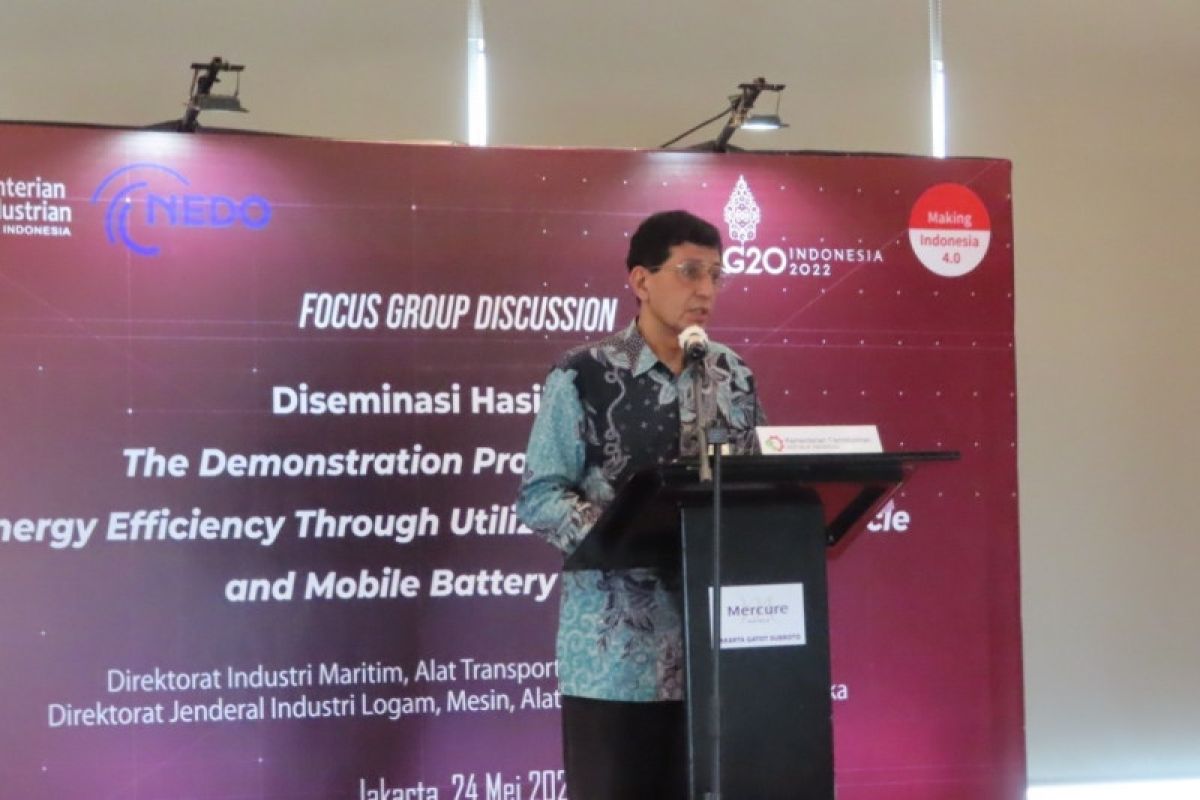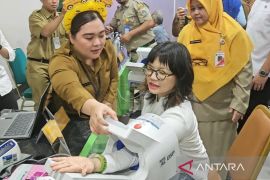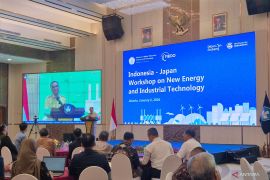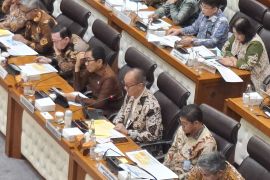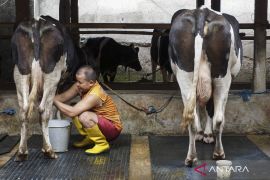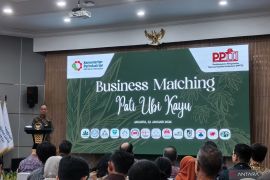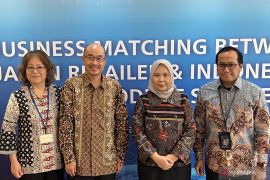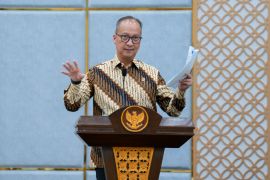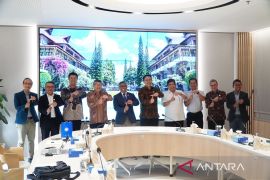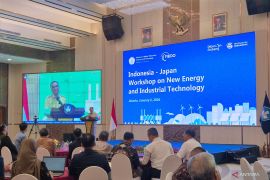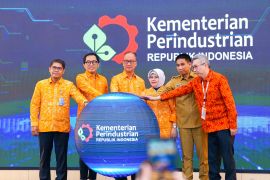We hope it would be used as a reference to support investment in the development of a low-emission and environmentally friendly motor vehicle ecosystem in IndonesiaJakarta (ANTARA) - The Industry Ministry is collaborating with the New Energy and Industrial Technology Development Organization (NEDO), Japanese Executing Agency, and Indonesian R&D Institution for developing Indonesia's electric vehicle ecosystem, including through applying the swap battery technology.
"We laud their contributions and cooperation in helping the demonstration project of electric motorcycles with the swap battery technology amid the COVID-19 pandemic," Director-General of Metal, Machinery, Transportation Equipment and Electronics (ILMATE) at the Industry Ministry, Taufiek Bawazier, noted in his statement here, Tuesday.
Bawazier remarked that the results of the project study could offer a comprehensive overview of the battery swap business model and its impact on the motor vehicle industry.
Related news: Electric cars to drive up Labuan Bajo's attractive quotient: BPOLBF
"We hope it would be used as a reference to support investment in the development of a low-emission and environmentally friendly motor vehicle ecosystem in Indonesia," Bawazier remarked.
He emphasized that in an effort to develop electric vehicles in Indonesia, the government has issued Presidential Regulation Number 55 of 2019 on the Acceleration of the Battery Electric Vehicle (BEV) Program for Road Transportation and Government Regulation (PP) Number 74 of 2021 on Sales Tax on Goods Luxury (PPnBM) Motor Vehicles.
"In PP 74/2021, the PPnBM tariff for domestic vehicles with zero-emission technology, such as BEV and Fuel Cell Electric Vehicle (FCEV), will be given at zero percent, with the fulfillment of requirements related to increasing the manufacturing and/or Domestic Component Level (TKDN)," he elaborated.
In addition, the Ministry of Industry has issued Industry Minister Regulation Number 36 of 2021 on Low-Carbon Emission for Four-Wheeled Motor Vehicles.
Related news: West Kalimantan PLN aggressively promotes electric motorbikes
This regulates the requirements of the Low Carbon Emission Vehicle (LCEV) Program, such as investment, manufacturing deepening or TKDN, as well as other technical aspects of vehicles.
"It should be lauded that the Brand Holder Agents (APM) are committed to participating in the LCEV Program," Bawazier pointed out.
He is optimistic that the automotive industry would continue to support the acceleration of national economic recovery. This is reflected in the performance of the transportation equipment industry that clocked the highest growth in the first quarter of 2022, with an achievement of 14.2 percent year on year (yoy).
"Along with the brilliant automotive performance, the non-oil and gas processing industry was able to record growth of 5.47 percent or higher than the national economic growth that had reached 5.01 percent in the first quarter of 2022," he added.
Related news: Think 20 pushes issue of battery waste for global discussion
Related news: Indonesia woos electric vehicle, ICT investors at WEF
Translator: Sella Panduarsa G, Resinta S
Editor: Fardah Assegaf
Copyright © ANTARA 2022
